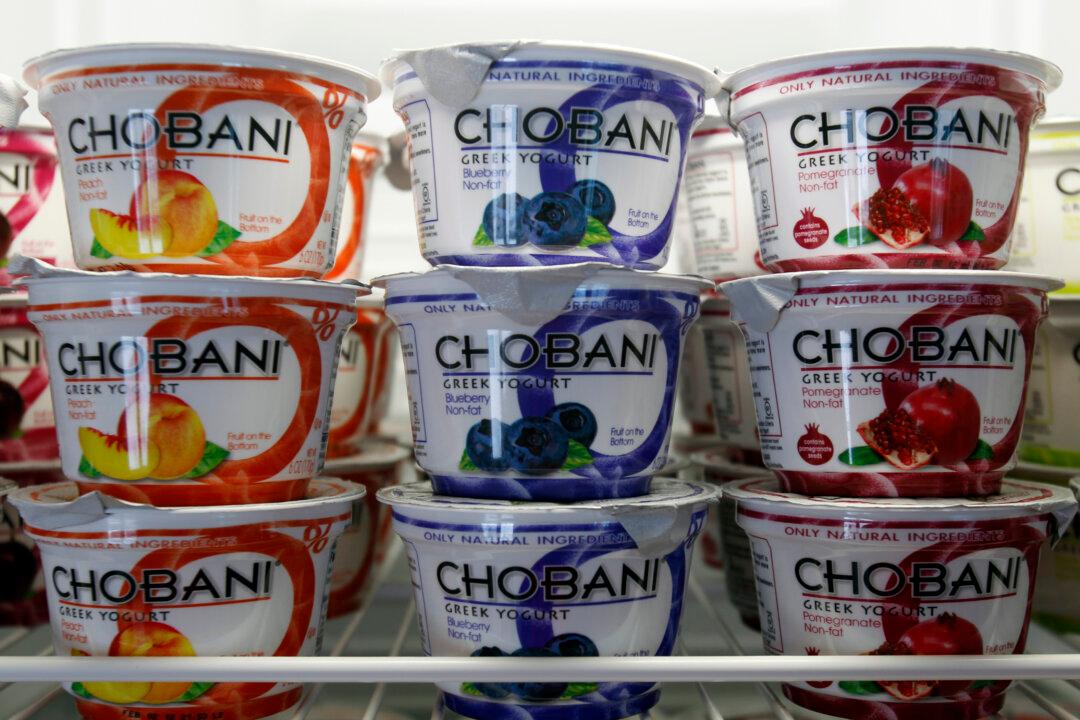The Greek yogurt maker with the colorful labels, Chobani, is asking a court to declare that its latest advertising campaign does not violate any laws.
Chobani filed its motion Friday, Jan. 8, after the New York-based company received a cease-and-desist letter from its largest competitor, Dannon, in reaction to Chobani’s national multichannel ad campaign that takes a swipe at both Dannon and Yoplait for their use of artificial sweeteners and preservatives.
On Sunday, Jan. 10, General Mills, which owns Yoplait, sued Chobani in Minnesota’s U.S. District Court, according to the Minneapolis/St. Paul Business Journal.
“The statements made by Chobani in their latest attempt to sell more yogurt are inaccurate and misleading, and we don’t think consumers appreciate that kind of approach,” said Mike Siemienas, a spokesman for General Mills, in an emailed statement.
General Mills wants the court to order a stop to the ads.
The Chobani Campaign
According to Ad Age, Chobani is calling 2016 “the year of Simply 100.” The current campaign for Chobani’s Simply 100-Calorie Greek Yogurt is planned for 12 weeks, and it includes everything from TV commercials and print advertising to coupons and a promotional push at Life Time Fitness gyms.
“You think you are doing something good for yourself and your family, by buying yogurt instead of bad stuff,” states the print ad, which has already run in national media. “And then you find that the bad stuff is in your yogurt!”
The campaign points out that Yoplait Greek 100 contains potassium sorbate as a preservative. “Really? That stuff is used to kill bugs."
General Mills lawyers said U.S. regulators consider potassium sorbate to be a safe food ingredient, but complained that the Chobani ads convey that, “because Yoplait Greek 100 is laced with a pesticide, it is so dangerous and unfit to eat that consumers should discard it as garbage,” the Journal reported.
Dannon Light & Fit Greek contains sucralose as a sweetener. “Sucralose? Why? That stuff has chlorine added to it!” says the ad.
Sucralose is an FDA-approved sweetener that has been used for over a decade. Consumers may recognize the popular sucralose product Splenda.
In the TV ad, an actor throws Dannon Light & Fit in a used-towel receptacle that looks very much like the trash. A Yoplait Greek 100 gets tossed out of a baby-blue vintage convertible into a very trash-like fruit crate.
According to the ad campaign, Chobani’s Simply 100-Calorie Greek Yogurt is the only nationally distributed Greek yogurt “without a trace of any artificial sweeteners or artificial preservatives.”
Chobani says its campaign provides consumers with accurate information to help them make informed decisions about their food choices.
“Consumers have the right to know what’s in their cup. This campaign is fundamentally about choice—the choice between natural ingredients versus artificial ingredients,” said Peter McGuinness, chief marketing and brand officer for Chobani, in a statement.
Responding to the legal actions against the company, McGuinness said: “While I’m not surprised, I’m disappointed that Dannon and General Mills are focused on stopping people from having the facts about artificial sweeteners and artificial preservatives. This campaign is about giving people truthful and accurate information so they can make more informed decisions about the food they buy.”
Letter of Law
Dannon in its letter, and General Mills in its court complaint, allege the advertisements are false, misleading, disparaging, or deceptive, in violation of the federal Lanham Act and state laws.
Chobani, of course, does not agree, but in its pre-emptive filing against Dannon, it acknowledges that there is “controversy” between the parties over Chobani’s claims.
Max Kennerly, a trial attorney who specializes in injury of people and businesses, says typically cases under the Lanham law deal with claims that are exaggerated or puffed up. He said that doesn’t appear to be the case here.
“Chlorine freaks people out, which is why Chobani put it in the ad, but that is not false,” said Kennerly.
He said Dannon may be upset that consumers may interpret there is poison in their product, but there is a decent argument that this is about consumer choice.
He said that to win in this case, Dannon would probably have to show that Chobani’s ads are somehow misleading consumers that there is something unsafe about Dannon’s products. “But Chobani did not say your product was poison, dangerous, or illegal. They would never say that.”
Christie Grymes Thompson, partner in legal firm Kelley Drye, said that under section 43(a) of the act, “companies are permitted to tout unique attributes of their products as long as the way you do the touting doesn’t create an overall false impression.”
It does raise the question of whether saying potassium sorbate is used to kill bugs is fair in the context of the ad, she said. “This includes not creating the impression that the natural products have a greater benefit than they really do.”





